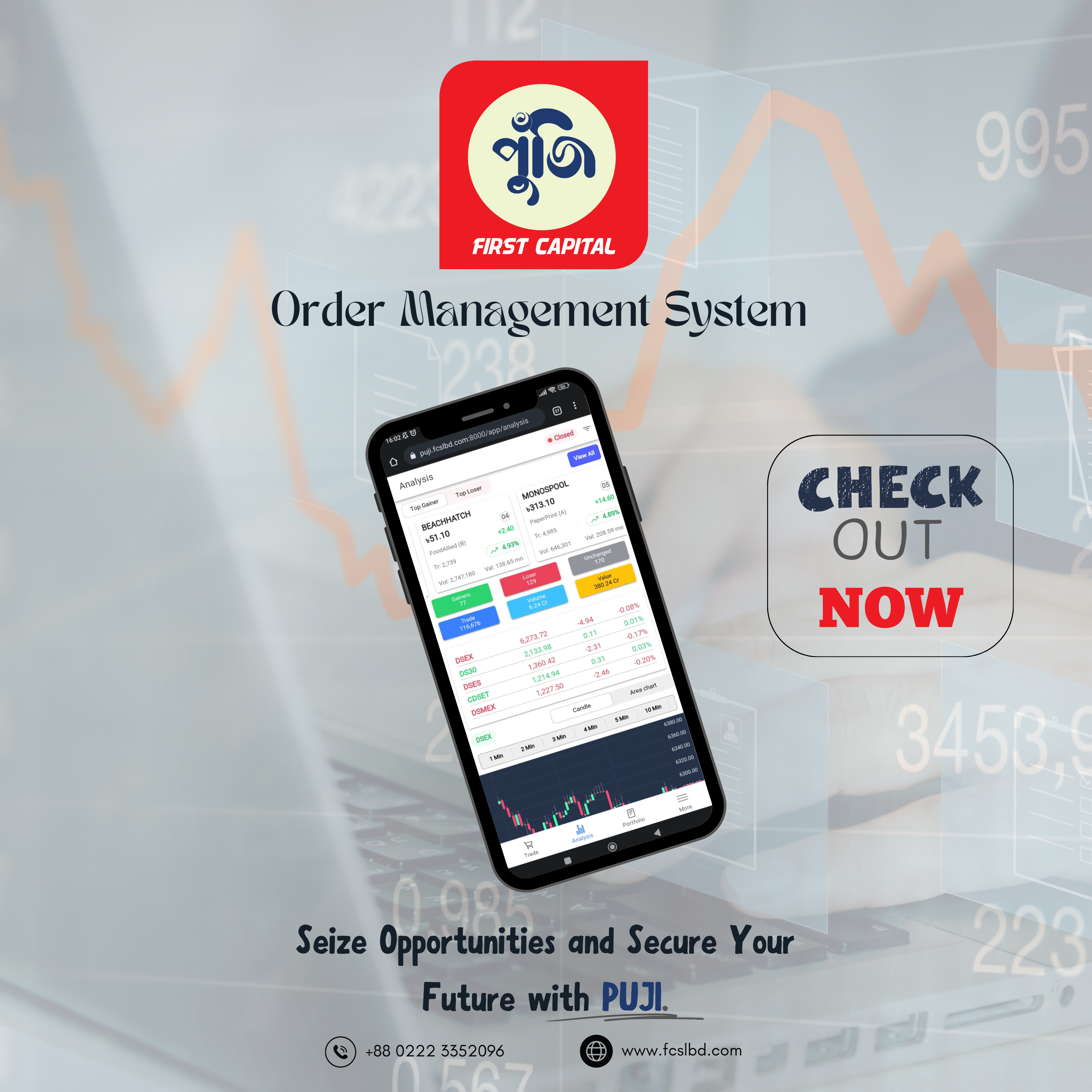The potential of the country’s capital market has largely been unexplored in business financing because of policies that support easy, unregulated access to loans from the banking sector.
In consequence, the equity market has remained stunted for decades while the banking sector is on the verge of collapse for a rapid growth of non-performing loans. On the other hand, neighbouring countries have used the stock markets to the advantage of long-term financing.
A comparative picture would help understand how insignificant the size of the equity market is in Bangladesh. Last year, privately-run The City Bank alone disbursed loans worth Tk 41.3 billion whereas the aggregate amount of funds raised via the equity market in the same year was Tk 5.1 billion.
The market helped generate funds in the range of Tk 2 billion to Tk 14 billion between 2016 and 2023. The contribution of the country’s capital market in financing businesses was a mere 0.5 per cent, equivalent to Tk 54 billion, against 99.5 per cent or Tk 10.08 trillion lent by the banking sector in the last nine years.
Bangladesh is 12 per cent of India in terms of population and 13 per cent when both nations’ GDPs are taken into consideration. But in terms of IPOs between 2016 and 2023, Bangladesh is about 1 per cent of India.
Here, banks face a mismatch in debt management for providing long-term financing against short-term deposits.
In the financial ecosystem of countries with functional capital markets, the markets provide long-term financing instead of banks.
Good companies’ reluctance to list
Industry insiders think the problem lies with weak corporate practices in Bangladesh. Local, successful entrepreneurs do not want to share profits with shareholders and comply with listing regulations.
That is why several groups have issued shares of their weak subsidiaries to the market while better-performing units remain non-listed.
However, listing and its associated corporate regulations, if compliance is ensured, help strengthen businesses’ fundamentals. Non-listed companies may find their existence threatened after the death of the founders, but listed companies will keep running with the support of the market, regulators and shareholders.
Square Pharmaceuticals is one of the best examples of an enterprise thriving in the absence of the original entrepreneur, Samson H Chowdhury.
Another listed company, Olympic Industries has been performing well even though its owners do not live in the country.
A listed company’s corporate governance should be better than non-listed ones for mandatory disclosures of financial statements, annual general meetings and other measures of accountability.
Long-term financing through market on the agenda
Mandatory long-term financing through the capital market received renewed attention after the broad index of the Dhaka bourse shed around 800 points in four consecutive sessions at the end of October.
At a meeting with Finance Adviser Dr Salehuddin Ahmed on October 30, officials of the Bangladesh Securities and Exchange Commission (BSEC) suggested introducing a provision for companies to get long-term financing from the market after reaching a threshold of bank borrowings.
Mohammad Rezaul Karim, a BSEC executive director and spokesperson, said they were trying to include the matter on the agenda to be set for the upcoming coordination meeting of the financial sectors under the leadership of the central bank governor.
Shrinking IPO flow
Funds collected through IPOs and qualified investors’ offers (QIOs) amounted to Tk 5.6 billion in 2016. The amount rose to Tk 13.7 billion in 2020 and then declined to Tk 5.1 billion last year.
The Covid outbreak was blamed for the submission of an insignificant number of IPO proposals. Many local companies experienced losses due to countrywide shutdowns and rise in import costs following a hike in the prices of raw materials and exchange rates.
This year, the IPO pipeline has dried up further.
An amount worth Tk 1.1 billion only was raised through IPOs and QIOs as of September.
Market operators say the IPO valuation process under the book building method discourages companies from raising funds from the market.
The BSEC currently considers a company’s net asset value, prices of similar stocks, and the average EPS (earnings per share) in the preceding five years to decide the value of IPO shares.
Previously, companies’ offer prices were fixed based on the cut-off yield of the prices offered by eligible investors at the IPO bidding. Market operators have been demanding reintroduction of the market-driven formula to attract good companies.
Members of the task force recently formed by the securities regulator to recommend reforms said a move is underway to change the IPO valuation method.
A thriving market needs policy against long-term bank borrowings
162
previous post




